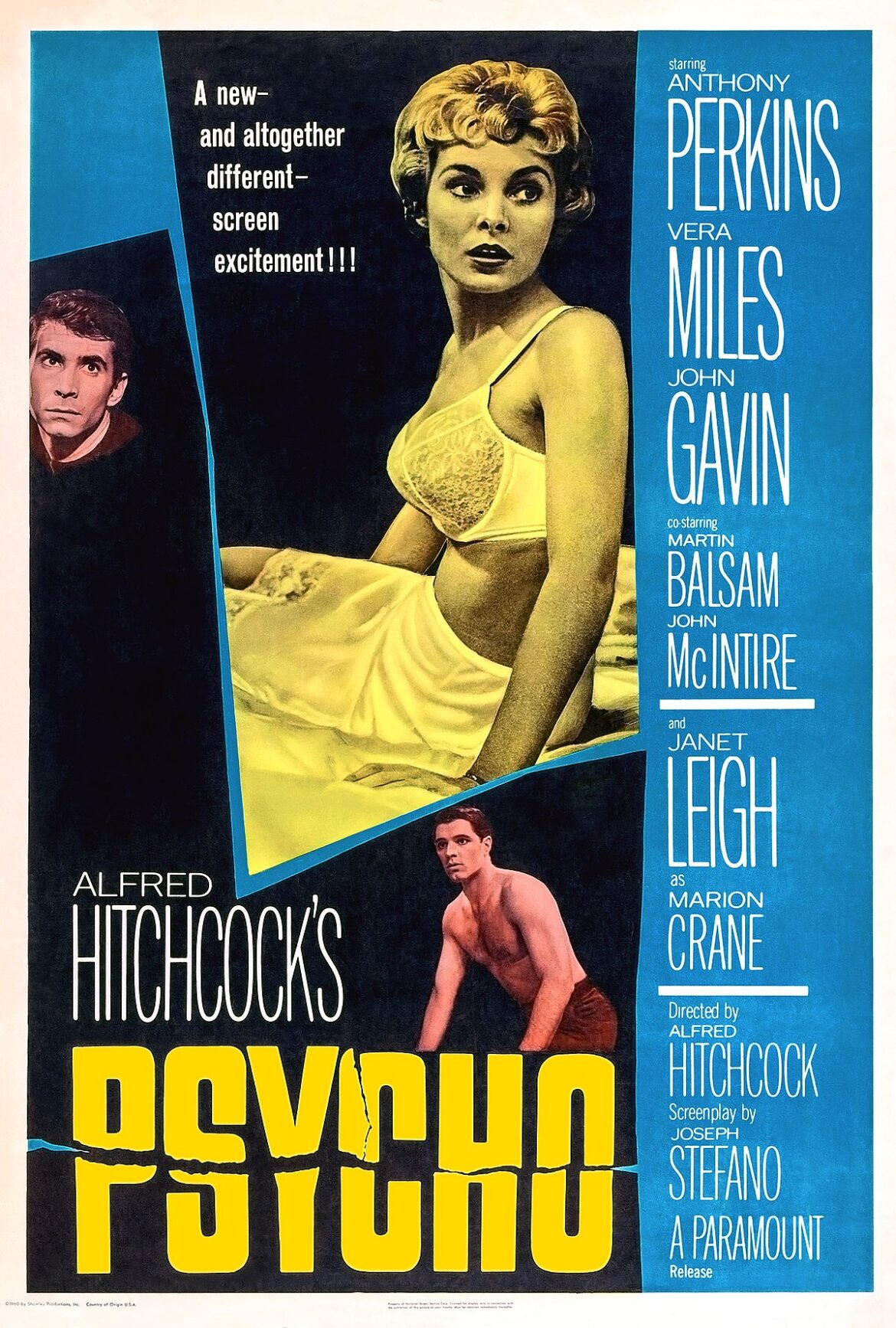Psycho (1960) – Alfred Hitchcock’s Masterpiece of Suspense
Type: Movie
Country: USA
Genre: Horror, Thriller, Mystery
Release Date: September 8, 1960
Duration: 109 minutes
Director: Alfred Hitchcock
Production Companies: Paramount Pictures
Cast: Anthony Perkins, Janet Leigh, Vera Miles, Martin Balsam
Quick Review:
Alfred Hitchcock’s “Psycho” (1960) stands as a towering achievement in the horror genre, renowned for its innovative approach to suspense and psychological terror. The film’s shocking narrative twists, memorable score, and iconic performances make it a landmark in cinematic history. With its blend of psychological complexity and horror, “Psycho” continues to influence filmmakers and captivate audiences with its chilling storytelling.
Plot Summary:
“Psycho” centers on Marion Crane (Janet Leigh), who steals a large sum of money and flees, only to find herself at the eerie Bates Motel. There, she encounters Norman Bates (Anthony Perkins), a troubled motel owner with a dark secret. The film takes a dramatic turn when Marion mysteriously disappears, leading to a tense investigation. The plot unravels with startling revelations about Norman’s past and his connection to the motel’s unsettling atmosphere.
Characters and Performances:
- Anthony Perkins (Norman Bates): Perkins delivers a hauntingly memorable performance as Norman Bates, a character who blends charm with unsettling unpredictability. His portrayal of a man deeply affected by his mother’s influence is both chilling and tragic.
- Janet Leigh (Marion Crane): Leigh’s role as Marion Crane is both sympathetic and intense. Her performance in the film’s pivotal scenes, particularly the infamous shower scene, solidifies her place in cinema history.
- Vera Miles (Lila Crane): Miles plays Lila Crane, Marion’s sister, with a blend of determination and vulnerability. Her quest to uncover Marion’s fate drives much of the film’s suspenseful second act.
- Martin Balsam (Detective Arbogast): Balsam’s role as Detective Arbogast adds an element of authority and persistence, contributing to the film’s investigative aspect and heightening the tension.
Direction and Cinematography:
Alfred Hitchcock’s direction is masterful, utilizing suspense and psychological tension to create a gripping narrative. The film’s cinematography, by John L. Russell, employs stark contrasts and eerie framing to enhance the unsettling atmosphere. Notably, the famous shower scene is a prime example of Hitchcock’s innovative approach to visual storytelling, using rapid cuts and close-ups to create a shocking and memorable sequence.
Music:
Bernard Herrmann’s score for “Psycho” is iconic, with its haunting string music becoming synonymous with the film’s suspenseful and eerie tone. The score’s sharp, jarring notes in the shower scene are particularly effective in heightening the sense of terror and have become a defining element of the film’s legacy.
Why It Endures:
“Psycho” endures as a classic due to its groundbreaking approach to the horror genre. Hitchcock’s ability to blend psychological complexity with intense suspense set a new standard for filmmaking. The film’s innovative narrative structure, combined with its memorable characters and shocking moments, has cemented its place as a seminal work in cinema. Its influence is evident in countless films and its legacy continues to captivate new generations of viewers.
In Conclusion:
“Psycho” (1960) remains a landmark in cinematic history, celebrated for its psychological depth, suspenseful storytelling, and unforgettable performances. Alfred Hitchcock’s direction and Bernard Herrmann’s score combine to create a film that continues to captivate and terrify audiences. Its innovative approach to narrative and its influence on the horror genre ensure its enduring relevance and acclaim.


